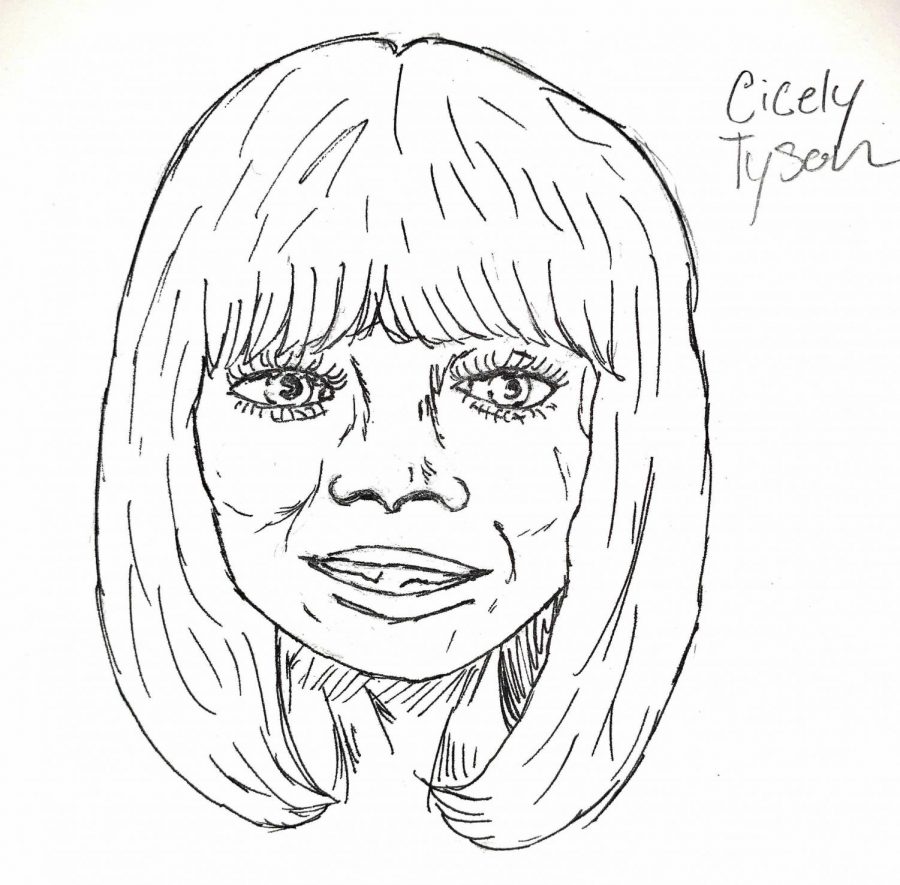Longtime Hollywood legend paves way for Black actresses before death
Cecily Tyson is remembered fondly for her role in pioneering the film industry for many Black actresses.
Known for her decades-long depiction of strong Black women on screen, Cicely Tyson was one of the biggest names in Hollywood. Starting out as a fashion model in the 50s, no one could have predicted how big and influential she would become. She was the first black woman to win an Oscar and the first black woman to have a recurring role in a TV show.
In the early 1950s, Tyson was discovered by Ebony magazine for her looks, and that was just the beginning of her stardom. As a fashion icon, Tyson was known for turning heads along with her ex-husband, jazz icon Miles Davis, when they went to events. She was known to have such good relations in the fashion industry that, at times, she would show up to events and not know what she was wearing until it was time to hit the stage, and she always pulled off her looks.
Tyson’s first role on TV was on the NBC drama series “Frontiers of Faith”. She played a tiny role in just one episode, but that exposed her to many other acting jobs. One of her first movie roles was in the 1959 crime film “Odds Against Tomorrow”, where she played a bartender.
While her career as a star might seem glamorous and classy, Tyson also went through hardships shared by many other Black actresses. The exploitation of Black women in movies was very common in the 20th century, and for most Black actresses, these were the only roles possible. Throughout the 1960s, Tyson had very few roles because she refused to play these demeaning characters, and her acting career came to a small stop. In the 70s, African American women playing the hero became a fan favorite, and her role as Rebecca in “Sounder” (1972) threw her into the spotlight, which was one of the first Black heroine roles in Hollywood. It was her first major movie role, and it gave way to her first Oscar nomination for Best Actress in a Motion Picture.
Tyson also had a huge career in theatre, starting her career with Jean Genet’s “The Blacks” in 1958, and in the “The Trip to Bountiful” (2014), Tyson played Miss Carries Watts, a woman who wants to go home, and this role won her a Tony award for Best Actress in a Play. In “King” (1979), Tyson played Coretta Scott King and was nominated for Best Lead Actress in a Miniseries at the Emmys. She aimed to play strong Black women throughout her career, and in doing so, challenged the way Hollywood casted Black actors, creating a legacy that opened the doors for many after her.
No one can deny the influence and power Tyson’s had over the past few generations, and whether it’s fans from her fashion model days, or from her more recent guest star appearances in ABC’s “How to Get Away with Murder”, the thespian has had a hold on the entertainment world for a long time. In 2016, President Obama honored her with the Presidential Medal of Freedom, America’s highest civilian honor, because of all her accomplishments and her contributions to the racial progress in Hollywood for over 70 years.
In the weeks before she passed away, Cicely Tyson spent her time promoting her new book, “Just As I Am: A Memoir”. Like she said before its release, “In these pages, I am indeed Cicely, the actress who has been blessed to grace the stage and screen for six decades. Yet I am also the church girl who once rarely spoke a word.” As one of the most talented actresses to ever grace the stage or screens both silver and small, Tyson changed history because of who she was—a pioneering Black actress who stood up for what was right.

Yasmin Mohamed is a senior at CHHS and a staff writer for The Heights Herald. She enjoys journalism because she loves keeping up with the latest news and...

Jasmin Dominguez is a Senior at Columbia Heights High school, she is a staff writer. She likes writing for journalism because she learns to look at important...







